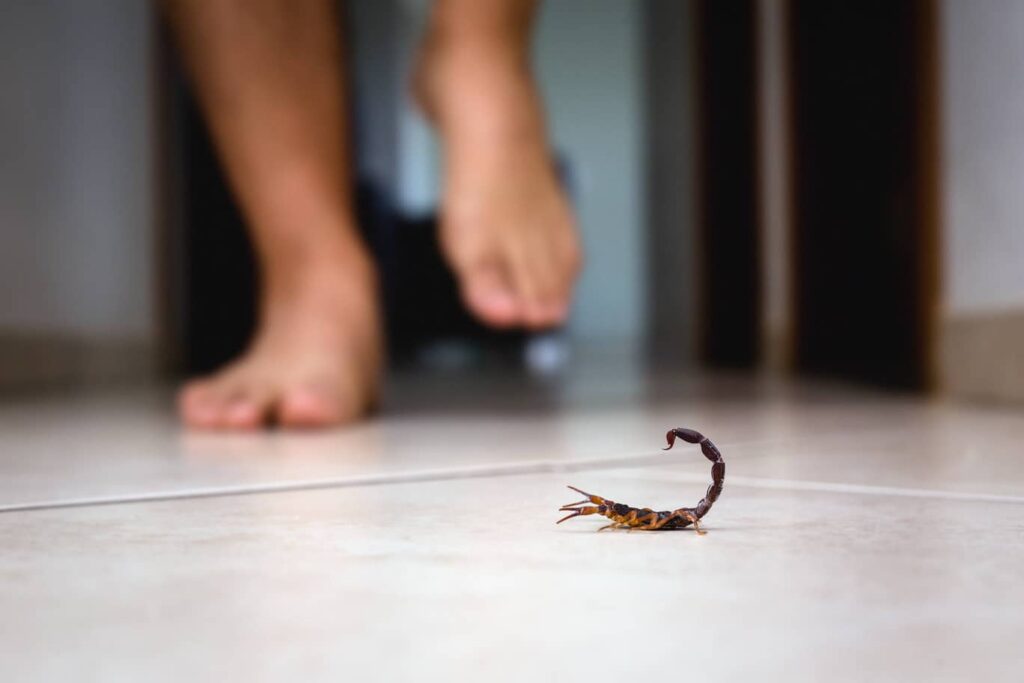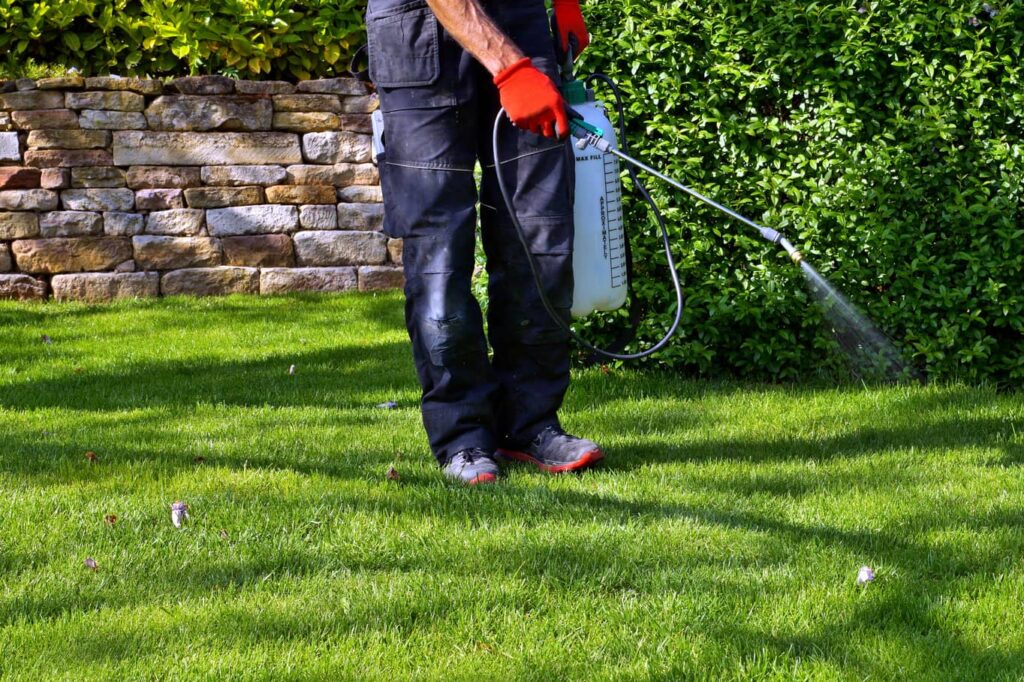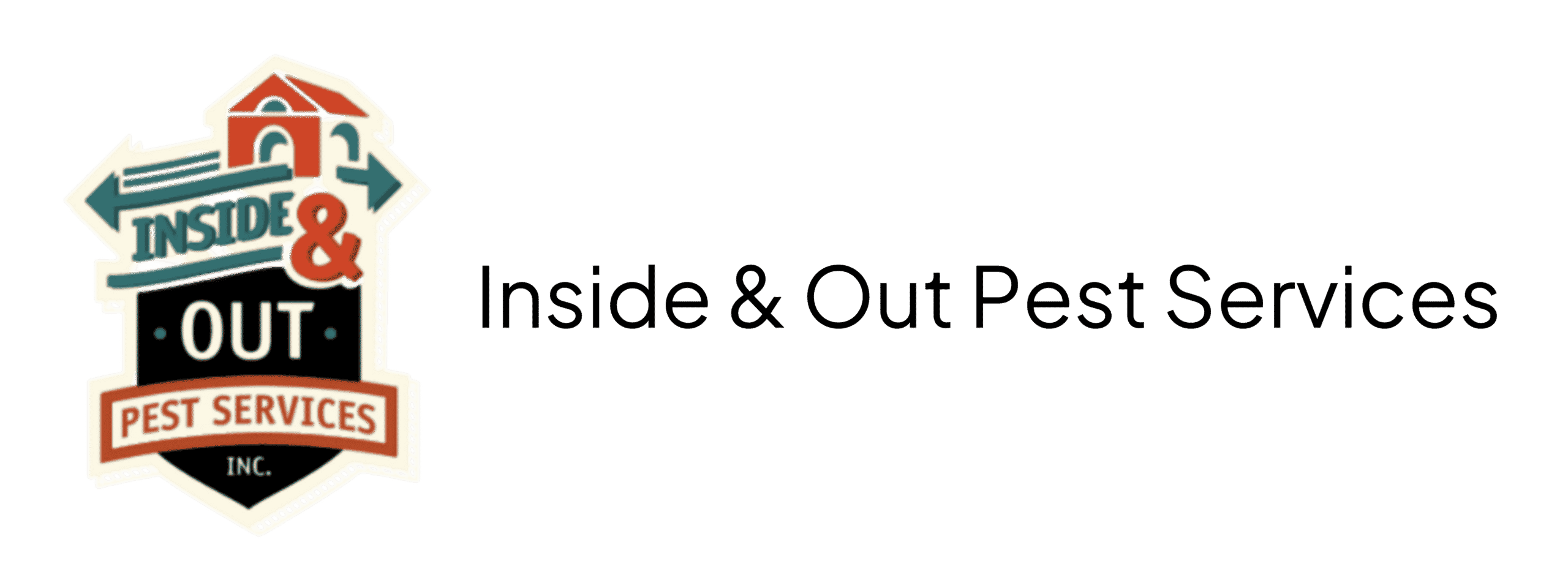Wondering which insects live in which places can take a long time to figure out. Consider the climate of the area where you live. In Florida, there are a lot of insects due to the climate of Florida. High humidity, high moisture, and a warm year-round climate create a great living experience for many insects. This includes insects like scorpions. Are there scorpions in Florida? Yes, three species of scorpions live in Florida. They will sting but not kill you.
Let’s take a look below at what those species of scorpions are.
What Are The Scorpions In Florida?
Believe it or not, three types of scorpion species are found in Florida. Let’s take a look below at the three species.
- Florida Bark Scorpion Centruroide gracillis – This species is the most common scorpion in Florida. Keep in mind that this slender brown scorpion or brown bark scorpion could be present in other parts of the world. The scorpion venom of this species is very painful. However, it is not as potent as other scorpion species. Typically, they grow up to four inches long. Look for the small yellow dashes on their backs. Their bodies are dark brown.
- Hentz Striped Scorpion Centruroides hentzi – The most commonly encountered scorpion in the US. This species only grows to be two to two and a half inches in size. Look for yellow-green stripes going across the midsection of their bodies. In some cases, they have darker stripes running across the midsection of their bodies. Like the Florida Bark Scorpion, they are also brown-bodied.
- Guiana Striped Scorpion – This species is typically not found throughout the entire state of Florida. This species loves the hot and humid parts of Florida. So, you will likely find them more south in areas of Miami-Dade and Monroe counties. Also referred to as Centruroides guanensis. Additionally, this species will grow to be 1 to 3 inches in length. Consequently, they have yellow bodies with brown backs. Two dark stripes are seen extending lengthwise across their bodies.

Will These Species Of Scorpions Sting Me?
All scorpions when faced with danger will sting humans. Luckily, the Florida scorpions do not possess a fatal sting. Keep in mind, the sting from a scorpion could still create allergic reactions and swelling. This is the painful part. Consequently, the Florida scorpions are not aggressive and will only sting you if they are pinned against your skin due to being trapped in your sheets or clothes.
Where Do They Live?
Wondering where these Florida scorpions might live? Like most insects, they love areas that are private. They prefer the ground. Finding shelter under rocks and leaf piles or loose tree bark are great spots for a scorpion to hide. Also, you will find scorpions on dirt roads or in your home as they hunt for food.
Other Recommended Maintenance
Now that you know the types of scorpions in Florida you can research other insects that might be present in Florida. For example, are there ticks in Florida? Yes, there are, you will want to take the proper precautions to not get them on your skin.
Next, to keep scorpions and other insects from getting too close to you and your home, maintain proper outdoor pest control. Focusing on outside pest control will create a barrier around your home and eliminate the possibility of insects gaining access to your home.
Lastly, another insect in Florida that is a nuisance is the love bug. Once they start showing up they are impossible to keep off of your car. Be sure to clean your car after you’re done making road trips. Read up on how to prevent love bugs from sticking to your car to ensure that your car stays clean.

When Do I Call A Professional?
If you happen to discover a scorpion infestation around your home, you will want to call on your local pest control company. These insects might not be deadly, however, they will be a nuisance and rather scary sight in your home. Be sure to keep up with your exterior pest control to keep scorpions far away from your home.
Conclusion
Although Florida scorpions are not a threat to homeowners’ safety or health, they can be a nuisance in or around your home. If you happen to come across any Florida scorpions you should immediately call your local pest control team. Having your outdoor pest control updated is a great idea. Reach out to Inside and Out Pest Services in Jacksonville, FL, and surrounding areas to get your pest inspection done today.



